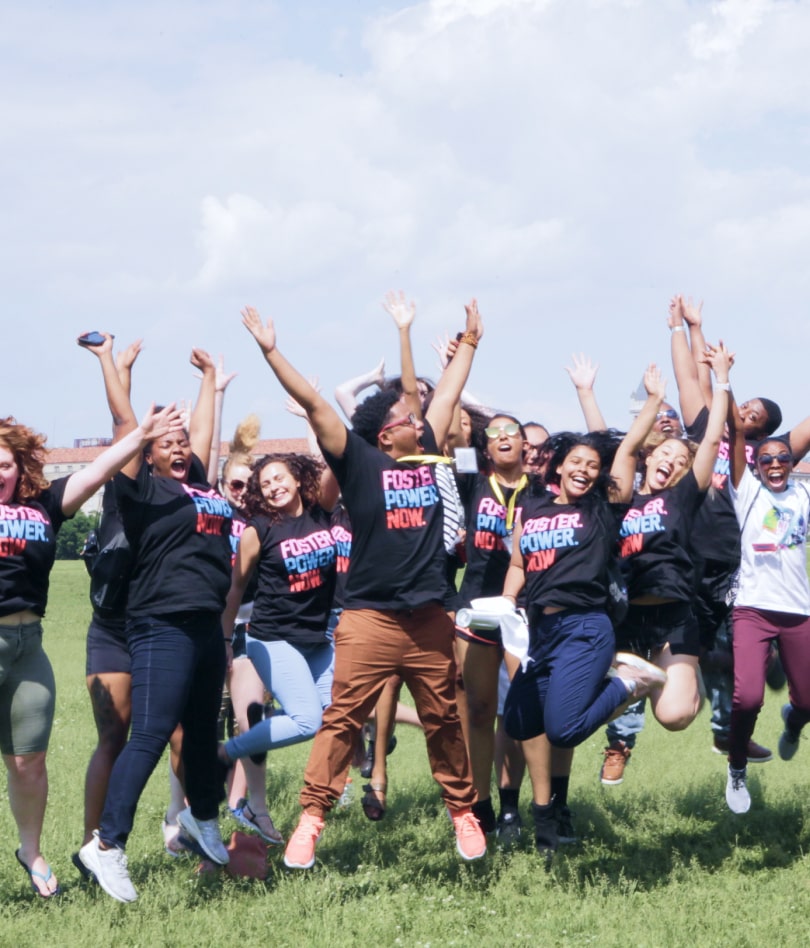Fostering Health and Wellness
Many children and adolescents in foster care face complex health challenges, often stemming from early trauma. However, with the right support, resources, and holistic approaches, these young people can overcome these difficulties and thrive. At NFYI, we focus on providing trauma-informed care that addresses both physical and mental health needs, empowering youth to take control of their well-being. Our approach goes beyond simply managing symptoms — we’re dedicated to helping foster youth build the resilience needed for healthier futures.
Foster youth face unique and complex medical, mental, and psychosocial challenges. Many children entering foster care struggle with severe trauma, which can lead to long-term developmental impacts. These issues are compounded by limited access to adequate healthcare, including physical and mental health services. As a result, foster youth are at a higher risk of developing chronic health conditions, substance use disorders, and mental health issues such as PTSD — at double the rate of war veterans.
The American Academy of Pediatrics identifies mental and behavioral health as the “greatest unmet health need for children and teens in foster care,” a concern that NFYI has made a central focus of our work. That’s why NFYI’s programming is intentionally trauma-informed, designed to provide the specialized support our members need to heal and thrive. We understand that the trauma experienced by foster youth requires more than just traditional care — it requires a holistic approach that encompasses physical health, mental health, and emotional wellness.


Our Approach
To support our community, we take special steps in creating safe spaces and facilitating access to services that promote healing. From providing trauma-informed workshops on mental health topics to advocating for better policies, NFYI ensures that foster youth are empowered to prioritize their health and wellness. Our programming includes initiatives like DJay’s Corner, a flexible wellness space at our conferences, and trauma-informed professional development — all aimed at building resilience and fostering overall well-being.
In addition, we continue to push for policies that improve access to healthcare for foster youth. Our recommendations focus on increasing access to mental health care, expanding Medicaid coverage, and offering more support for services that go beyond the basics to include alternative therapies and comprehensive care. We are advocating for federal and state-level changes to ensure that every foster youth has access to the services they need to lead a healthy life.


Policy Recommendations
- Increase Access to Mental Health Services : Mandate mental health services tailored for foster youth, including crisis intervention and ongoing counseling.
- Expand Medicaid Coverage : Ensure that Medicaid supports the full spectrum of health and mental health services for foster youth.
- Support Alternative Therapies : Provide evidence-based guidance to enhance access to creative and alternative therapies that promote healing.
- Support Alternative Therapies : Provide evidence-based guidance to enhance access to creative and alternative therapies that promote healing.
- Expand Coverage : Extend dental coverage for foster youth up to age 26 and ensure access to necessary medical treatments.
- Trauma-Informed Training : Provide training for all professionals working with foster youth, including social workers, educators, and legal professionals, to promote trauma-informed care practices.
NFYI IN ACTION
NFYI works closely with national partners and policymakers to drive change at the local and federal levels. Our efforts include advocacy for mental health care access, the expansion of alternative therapies, and ongoing community engagement with our members. We also co-authored a policy paper on alternative mental health therapies that is currently being used to inform federal policy. Read the paper here.
These policy recommendations are part of our three-year campaign, Urgency to Act: Unlocking Foster Youth Wellbeing, designed by NFYI staff, youth members, and researchers.
NFYI has developed a national policy agenda for access to mental health care and is currently working on a federal bill to increase access to alternative therapies. Click here to read a research paper co-written by NFYI on the benefits and barriers to alternative mental health therapies for former foster youth.

